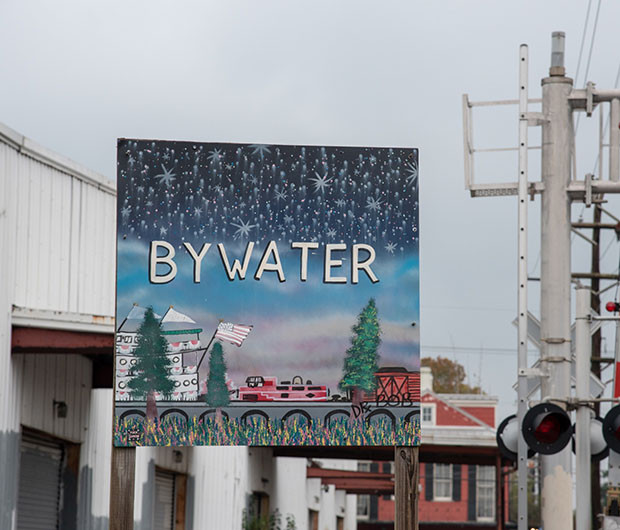Bywater Homes for Sale
This eclectic and vibrant neighborhood has the old-time, laid-back charm and a mix of multiple-generation locals with recent arrivals.
Primarily residential yet unflinchingly hip, this neighborhood, located just east downriver from the French Quarter, is a healthy mix of edgy art galleries, organic eateries, funky wine bars, and colorful architecture that’s unique to New Orleans. Rather than being built anew, the Bywater’s architectural medley of colonial French and Spanish (with Caribbean influences) has instead been lovingly preserved and stylishly updated.
The result is a funky, friendly mix of the perceived trappings of hipsterdom (juice bars serving organic avocado toast) and the old-school bohemia with its artistic bent and DIY renovation genius.
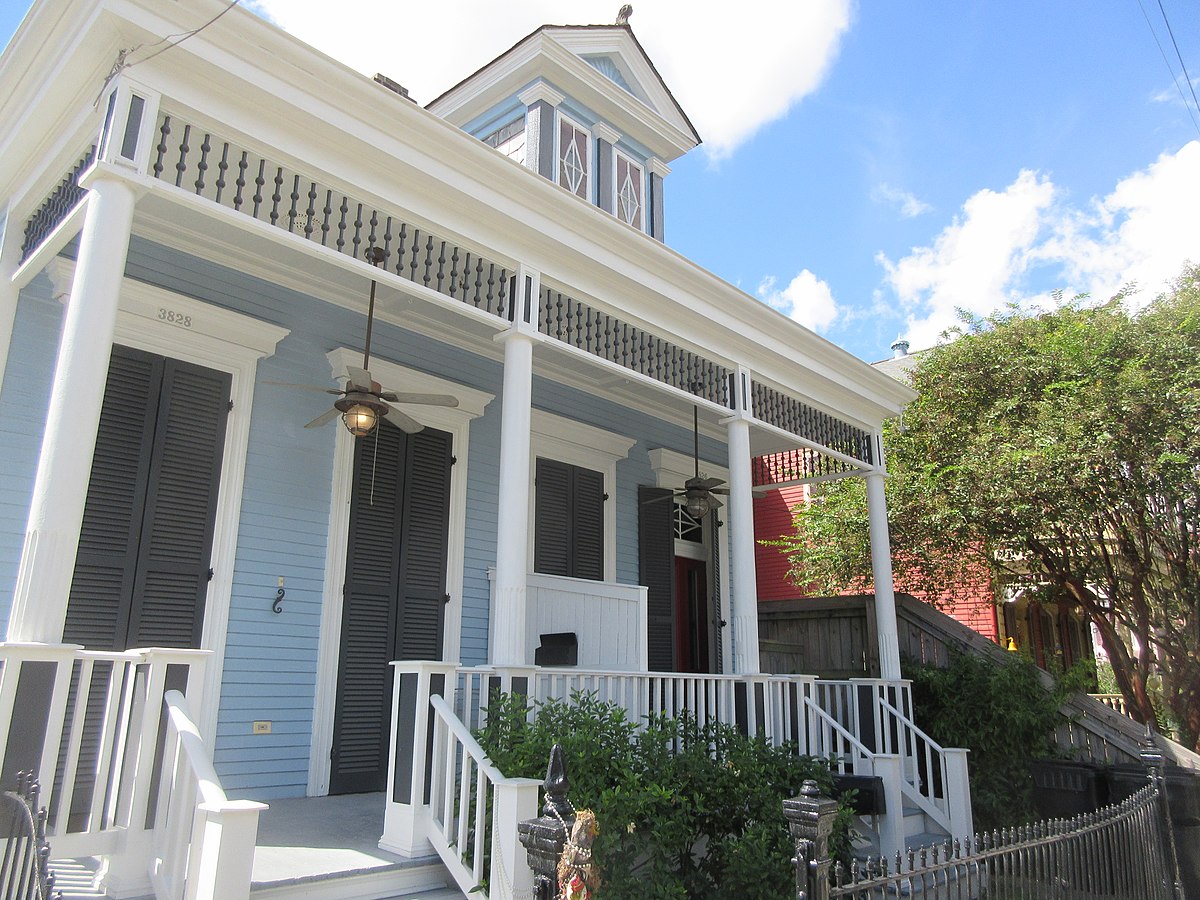
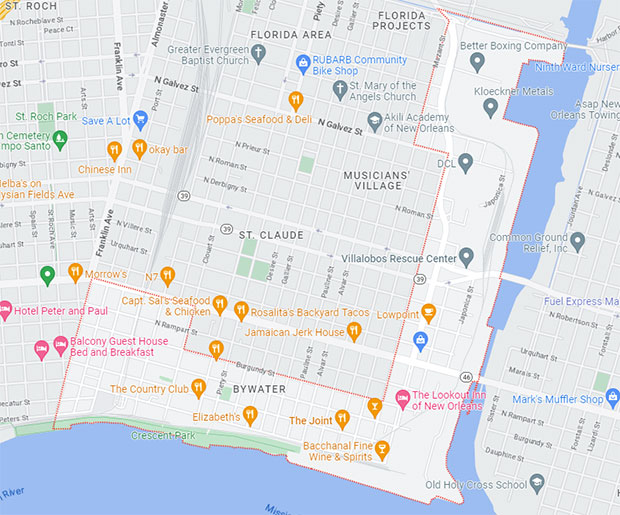
Where Is The Bywater?
The Bywater is a sub-district of Bywater District Area. According to the U.S. Census Bureau, its total area is 1.33 sq. mi.
The Bywater’s boundaries, as defined by the City Planning Commission, are:
North: Florida Avenue
East: Industrial Canal
West: Franklin Ave
South: Mississippi River

Homes for Sale in Bywater, New Orleans
Why Buy a Home in Bywater?
On the same street, you can get New York style pizza done right by a transplant chef, and dance in a 1950s dive to New Orleans’ own musical royalty going back three generations performing their weekly gig. The Bywater’s microcosm gives you a perfectly encapsulated glimpse of things that were, but also where New Orleans culture is headed. Explore some of our highlights below.
It’s Trendy and Culturally Diverse. Enjoy the ongoing influx of restaurants, coffee shops, and boutiques, thanks to the population that is a mix of transplants and long-term residents.
Unique Architecture. From Italianate mansions to Greek Revival to the colorful Creole cottages and classic shotguns, urban renewal has been good to this area. The most common building types are one-story single and double shotguns, many painted in bright Caribbean colors.
Green Spaces and Scenic Views of the Mississippi River. The recently completed Crescent Park at Piety and Chartres streets is a 1.4 mile, 20-acre park situated along the river. It’s marked by a rust-colored bridge and offers trails, bike paths, a dog run, and picnic areas. Another green space in the area, the newly renovated Mickey Markey Playground, is a popular spot for picnics and kid playtime as well as a hangout during some annual events, such as the Naked Bike Ride.
St. Claude Avenue is a gem lined with dozens of art galleries and live-music venues. Some of most interesting, edgiest galleries are located there (Good Children, Barrister’s, The Front), plus a cluster of some of the best performing spaces in the city — on any given night — for indie bands, DJ nights, burlesque, and experimental music and theater shows (the AllWays Lounge & Theater, Hi-Ho Lounge, Siberia).
Bywater, with its 120 blocks and more than 2,000 buildings, was designated as a National and Local Historic District in 1993.
Accessibility and Ease of Navigation. Bywater’s walk score is a high 83 out of 100. It’s also a biker’s paradise with the score of 92. And it’s a pleasant, 10-block stroll from the French Quarter.
Bywater
Attractions
The Music Box is a pioneer that doubles as a music lab and a music venue with a treehouse stage, and whose very interactive environment is made to create music. Since its opening in 2016, the space on North Rampart Street has hosted performances with Wilco, Tank & The Bangas, and Nora Jones as surprise guests.
The Healing Center, on the corner of St. Claude and St. Roch, is a multi-story community center that contains restaurants, a bookstore, a botanica, a performance space, a co-op, and more.
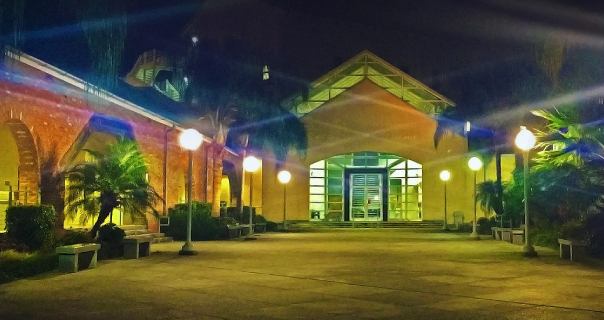
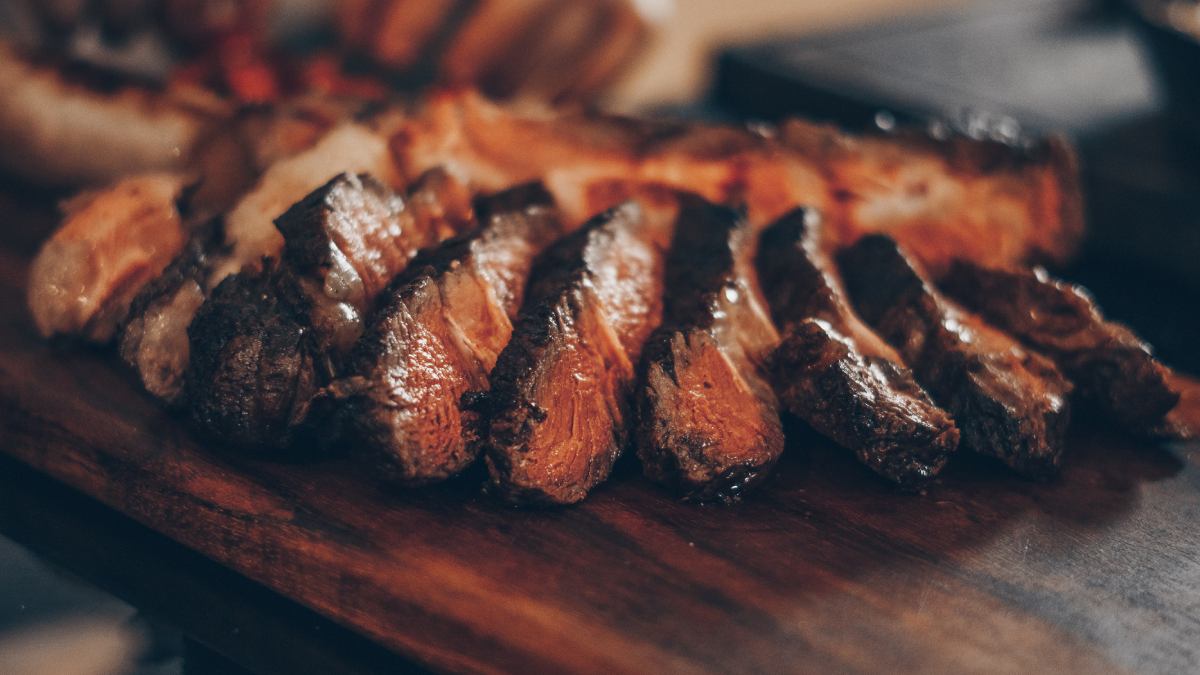
Piety Street Market in the old ironworks has an indoor-outdoor art and flea market on the second Saturday every month, with vintage and handmade goods, live music, food popups, and lots of crafts, all locally made.
A gleaming food hall in a revamped 1875 market, St. Roch Market offers lots of Gulf seafood and other Southern fare, plus outdoor seating.
Bacchanal, tucked away on Poland Avenue in a residential section, is the unforgettable self-proclaimed “NOLA’s backyard party,” with the enchanting garden to match.

History of Bywater, New Orleans
The Bywater didn’t evolve into a vibrant creativity-centered hotspot until the 1980s, eventually drawing comparisons to Brooklyn’s Bushwick and touted by Billboard as New Orleans’ “Hottest Neighborhood.” Until residential development began on predominantly Francophone plantation land, the area now called the Bywater was first called Faubourg Washington and, later, Little Saxony. The settlers were the usual New Orleans mix of Creoles and free people of color, joined by Italian, Irish, and German immigrants in the 19h century. Until the Industrial Canal was dredged in the early 20th century, the Bywater was inseparable from the area now called the Lower 9th Ward.
The Bywater is also home to the site where Homer Plessy was removed from an East Louisiana Railroad car in 1892 for violating the separate car act (Plessy v. Ferguson case). A historical marker at Press and Royal streets commemorates this event.
The 1980s saw an influx of residents, many of whom were part of the bohemian community, moving from the French Quarter farther downriver to the Bywater, St. Roch, and the Marigny. The gentrification of the neighborhood continues as its popularity and livability grow.
